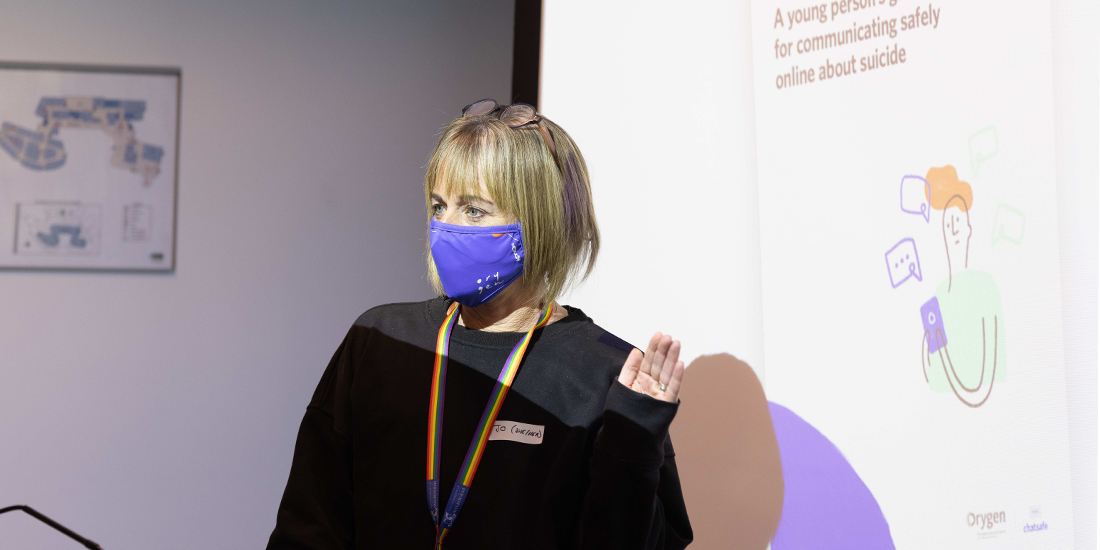
Orygen’s Associate Professor Jo Robinson has won an eMental Health International Collaborative (eMHIC) Leadership Excellence International Award for creating the #chatsafe guidelines.
The #chatsafe initiative involved the development of a set of world-first evidence-informed guidelines designed to directly support young people to communicate safely online about suicide.
The eMHIC award citation recognised the guidelines as “globally innovative” and commended Associate Professor’s approach to co-design.
“[Associate Professor Robinson] genuinely collaborate[s] and co-design[s] with young people in everything they do; they are world-leading, partnering with social media organisations, mental health sector experts and policy decision-makers to ensure the guidelines are grounded in the most up to date evidence and research,” the citation stated.
“[The guidelines] are practical; able to be utilised by young people, parents, those with thoughts of suicide, those who are bereaved and people with an interest in ensuring safe spaces online for young people everywhere.”
The #chatsafe guidelines were launched as a .pdf booklet in 2018 and have since evolved into an online platform, a social media campaign, and have been translated into local languages for young people in Brazil, Finland, Hong Kong, Mexico, Nigeria, Norway, South Korea, Singapore, Sweden and the United Kingdom.
Associate Professor Robinson said securing Facebook funding to translate the guidelines into multiple languages in 2020 was a significant milestone. Links to the guidelines are also now included in the Facebook and Instagram safety centre, making them available to billions of social media users across the globe.
“Having Facebook partner with us on the globalisation of the #chatsafe guidelines meant that we were able to provide information to young people all across the world,” Associate Professor Robinson said.
“I think a challenge is really addressing the complexity of suicide particularly across different parts of the world where suicide is still heavily stigmatised, but that just speaks even more to the importance of the issue.”
Associate Professor Robinson said the success of the #chatsafe guidelines had been driven by a team of researchers, clinicians, web designers and communications professionals. The most important partners, however, have been young people.
“Young people have been at the front and centre of everything we do at #chatsafe. They are the experts in their own lives, and that is why we have partnered with young people at every step along the way,” Associate Professor Robinson said.
The next step for #chatsafe is an update of the guidelines to bring them in line with the needs and expectations of young people today, and to expand them to include guidance on communicating safely online about self-harm.
“Social media is such a rapidly evolving landscape, so it is important that we continue to update the guidelines so that they best reflect what young people are posting and seeing online. We also need to consider what platforms they are using, and how they are using them,” Associate Professor Robinson said.
“The new #chatsafe guidelines will be created by mid-2022, and we will be recruiting young people to evaluate a new social media campaign in the latter half of 2022 as well.”
Development of the #chatsafe guidelines was funded by the Australian Government under the National Suicide Prevention Leadership and Support Program.
In September 2020, Orygen received a further $400,000 in Australian Government funding to continue its #chatsafe program.
In October 2021, Orygen’s Dr Louise La Sala received a Suicide Prevention Australia post-doctoral fellowship worth $290,000 to adapt #chatsafe for high school-aged young people, their carers and teachers.